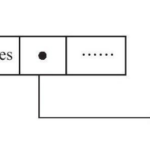前言:
随着innodb的普及,innobackup也成为了主流备份方式。物理备份对于新建slave,全库恢复的需求都能从容应对。
但当面临单表数据误删,或者单表误drop的情况,如果使用物理全备进行恢复呢?
下文将进行详细分析。
恢复过程中需要用到的工具,percona data recover tool : https://launchpad.net/percona-innodb-recovery-tool
情况一:误删部分数据,需要用最近一次备份覆盖
来自同一台机器的ibd恢复覆盖,且备份后table没有被recreate过。
这种情况是最简单的,备份时的ibd文件(后称老ibd)中的space id和index id 与 新ibd的space id 和index id一致。
且和ibdata文件中的space id和index id一致。因此,物理文件可以直接覆盖做恢复。
以下是详细步骤
Step -1 : 物理备份
innobackupex –defaults-file=/usr/local/mysql3321/my.cnf –socket=/xfs/mysql3321/mysql.sock –user=root –password=password /xfs/backup/
Step 0 : apply log
innobackupex –apply-log –defaults-file=/usr/local/mysql3321/my.cnf /xfs/backup/2012-10-17_11-29-20/
Step 1 : 备份现在的ibd文件(可选)
cp -a testibd.ibd testibd.bak
Step 2 : 舍弃现在ibd文件
mysql> alter table testibd discard tablespace
Step 3 : 复制备份ibd文件
shell> cp /xfs/backup/2012-10-17_11-29-20/test/testibd.ibd /xfs/mysql3321/test/
shell> chown mysql:mysql /xfs/mysql3321/test/testibd.ibd
Step 4 : 导入ibd文件
mysql> alter table testibd import tablespace
情况二:误删 table,表结构已经被drop了
这种情况稍复杂,不过恢复过程还是比较容易操作的。由于table被drop后的space id会留空因此备份文件的space id不会被占用。
我们只需要重建表结构,然后把ibdata中该表的space id还原,物理文件可以直接覆盖做恢复了。
Step 1 : 重建表
mysql> create table testibd (UserID int);
Step 2 : 关闭mysql服务(必须)
shell> service mysqld3321 stop
Step 3: 准备ibd文件 apply log
shell> innobackupex –apply-log –defaults-file=/usr/local/mysql3321/my.cnf /xfs/backup/2012-10-17_11-29-20/
Step 4 : 备份现在的ibd文件(可选)
cp -a testibd.ibd testibd.bak
Step 5 : 复制备份ibd文件
shell> cp -a /xfs/backup/2012-10-17_11-29-20/test/testibd.ibd /xfs/mysql3321/test/
shell> chown mysql:mysql /xfs/mysql3321/test/testibd.ibd
Step 6 : 使用percona recovery tool 修改ibdata
shell> /root/install/percona-data-recovery-tool-for-innodb-0.5/ibdconnect -o /xfs/mysql3321/ibdata1 -f /xfs/mysql3321/test/testibd.ibd -d test -t testibd
Initializing table definitions... Processing table: SYS_TABLES - total fields: 10 - nullable fields: 6 - minimum header size: 5 - minimum rec size: 21 - maximum rec size: 555 Processing table: SYS_INDEXES - total fields: 9 - nullable fields: 5 - minimum header size: 5 - minimum rec size: 29 - maximum rec size: 165 Setting SPACE=1 in SYS_TABLE for `test`.`testibd` Check if space id 1 is already used Page_id: 8, next page_id: 4294967295 Record position: 65 Checking field lengths for a row (SYS_TABLES): OFFSETS: 16 8 50 3 2 0 0 0 0 0 Db/table: infimum Space id: 1768842857 (0x696E6669) Next record at offset: 8D Record position: 8D Checking field lengths for a row (SYS_TABLES): OFFSETS: 16 11 17 24 32 36 40 48 52 52 Db/table: SYS_FOREIGN Space id: 0 (0x0) Next record at offset: D5 Record position: D5 Checking field lengths for a row (SYS_TABLES): OFFSETS: 16 16 22 29 37 41 45 53 57 57 Db/table: SYS_FOREIGN_COLS Space id: 0 (0x0) Next record at offset: 122 Record position: 122 Checking field lengths for a row (SYS_TABLES): OFFSETS: 16 12 18 25 33 37 41 49 53 53 Db/table: test/testibd Space id: 2 (0x2) Next record at offset: 74 Space id 1 is not used in any of the records in SYS_TABLES Page_id: 8, next page_id: 4294967295 Record position: 65 Checking field lengths for a row (SYS_TABLES): OFFSETS: 16 8 50 3 2 0 0 0 0 0 Db/table: infimum Space id: 1768842857 (0x696E6669) Next record at offset: 8D Record position: 8D Checking field lengths for a row (SYS_TABLES): OFFSETS: 16 11 17 24 32 36 40 48 52 52 Db/table: SYS_FOREIGN Space id: 0 (0x0) Next record at offset: D5 Record position: D5 Checking field lengths for a row (SYS_TABLES): OFFSETS: 16 16 22 29 37 41 45 53 57 57 Db/table: SYS_FOREIGN_COLS Space id: 0 (0x0) Next record at offset: 122 Record position: 122 Checking field lengths for a row (SYS_TABLES): OFFSETS: 16 12 18 25 33 37 41 49 53 53 Db/table: test/testibd Space id: 2 (0x2) Updating test/testibd (table_id 17) with id 0x01000000 SYS_TABLES is updated successfully Initializing table definitions... Processing table: SYS_TABLES - total fields: 10 - nullable fields: 6 - minimum header size: 5 - minimum rec size: 21 - maximum rec size: 555 Processing table: SYS_INDEXES - total fields: 9 - nullable fields: 5 - minimum header size: 5 - minimum rec size: 29 - maximum rec size: 165 Setting SPACE=1 in SYS_INDEXES for TABLE_ID = 17 Page_id: 11, next page_id: 4294967295 Record position: 65 Checking field lengths for a row (SYS_INDEXES): OFFSETS: 15 8 50 7 2 0 0 0 0 TABLE_ID: 3798561113125514496 SPACE: 1768842857 Next record at offset: 8C Record position: 8C Checking field lengths for a row (SYS_INDEXES): OFFSETS: 15 8 16 22 29 35 39 43 47 TABLE_ID: 11 SPACE: 0 Next record at offset: CE Record position: CE Checking field lengths for a row (SYS_INDEXES): OFFSETS: 15 8 16 22 29 36 40 44 48 TABLE_ID: 11 SPACE: 0 Next record at offset: 111 Record position: 111 Checking field lengths for a row (SYS_INDEXES): OFFSETS: 15 8 16 22 29 36 40 44 48 TABLE_ID: 11 SPACE: 0 Next record at offset: 154 Record position: 154 Checking field lengths for a row (SYS_INDEXES): OFFSETS: 15 8 16 22 29 35 39 43 47 TABLE_ID: 12 SPACE: 0 Next record at offset: 22C Record position: 22C Checking field lengths for a row (SYS_INDEXES): OFFSETS: 15 8 16 22 29 44 48 52 56 TABLE_ID: 17 SPACE: 2 Updating SPACE(0x00000001 , 0x01000000) for TABLE_ID: 17 sizeof(s)=4 Next record at offset: 74 SYS_INDEXES is updated successfully
Step 7 : 使用percona recovery tool 重新checksum ibdata
重复执行以下命令,直到程序没有输出为止。
shell> /root/install/percona-data-recovery-tool-for-innodb-0.5/innochecksum -f /xfs/mysql3321/ibdata1
page 8 invalid (fails old style checksum) page 8: old style: calculated = 0xF4AD74CB; recorded = 0xEECB309D fixing old checksum of page 8 page 8 invalid (fails new style checksum) page 8: new style: calculated = 0x6F0C29B4; recorded = 0x3D02308C fixing new checksum of page 8 page 11 invalid (fails old style checksum) page 11: old style: calculated = 0x3908087C; recorded = 0xF9E8D30C fixing old checksum of page 11 page 11 invalid (fails new style checksum) page 11: new style: calculated = 0xB26CFD77; recorded = 0xDB25D39D fixing new checksum of page 11
Step 8 : 启动mysql服务
shell> service mysqld3321 start
参考文档:
http://www.chriscalender.com/?p=28
http://www.mysqlperformanceblog.com/2011/05/13/connecting-orphaned-ibd-files/
http://blogs.innodb.com/wp/2012/04/innodb-transportable-tablespaces/






